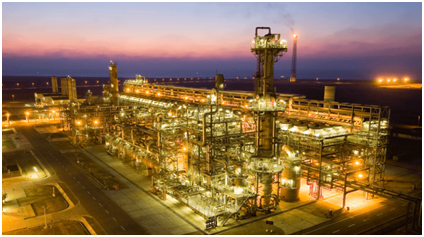
China is expected to lead the global LNG regasification capacity additions, contributing 27% of the total LNG regasification capacity additions between 2021 and 2025, says GlobalData, a data and analytics company.
The company’s report, ‘Global Capacity and Capital Expenditure Outlook for LNG Regasification Terminals, 2021–2025 - Asia Dominates Global Regasification Capacity Additions and Capex Spending’ reveals that China is expected to add a new-build LNG regasification capacity addition of 4191 billion ft3 by 2025, while expansion projects account for the rest with 1308 billion ft3.
Bhargavi Gandham, Oil and Gas Analyst at GlobalData, comments: “In China, 26 new-build and expansion projects are likely to start operations by 2025. Tangshan II is the largest upcoming project in the country with a capacity of 584.4 billion ft3 by 2025. Yantai I and Zhoushan III are the other major projects with capacities of 487 billion ft3and 340.9 billion ft3, respectively.
GlobalData identifies India to be the second-highest contributor to the global LNG regasification capacity additions with new build LNG regasification capacity additions of 2882 billion ft3 by 2025. Expansion projects account for the rest of the capacity additions with 365 billion ft3 by 2025. ‘Karwar Floating’ and ‘Jaigarh Port Floating’ projects lead LNG regasification capacity additions in the country with capacities of 365 billion ft3 and 274 billion ft3, respectively.
Pakistan is expected to be the third largest contributor to the LNG regasification capacity additions globally with 1752 billion ft3. Of these, new-build capacity additions account for 1697 billion ft3 and expansion capacity additions account for 55 billion ft3 by 2025. Among the new-build projects in the country, Port Qasim is the largest upcoming project with a capacity of 438 billion ft3. It is expected to start operations in 2023.